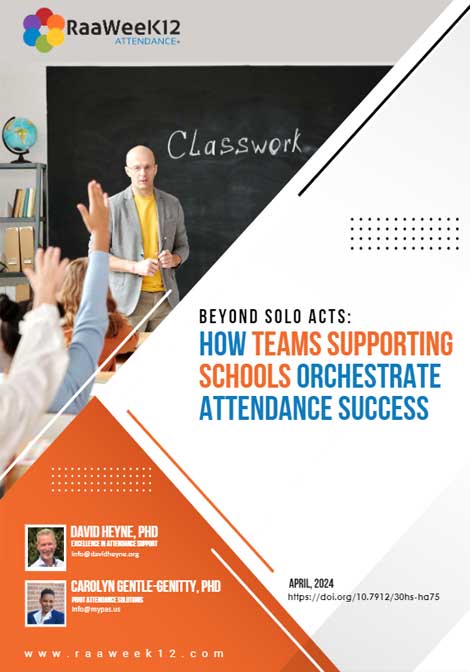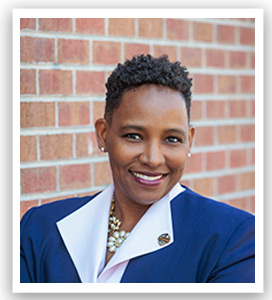
What if the solution to chronic absenteeism isn’t more rules, more blame, or more pressure, but more harmony?
You have probably heard the saying, "It takes a village to raise a child". But in the world of student attendance, it might be more accurate to say, "It takes an orchestra". Not just any orchestra, one where schools don’t play solo, but where every instrument, from district leaders to community agencies, hits the right note at the right time.
In education, few challenges have proven more stubborn or more consequential than student absenteeism. The instinct to address it school-by-school, case-by-case, is understandable. But as many districts have discovered, tackling absenteeism in isolation leads to inconsistent efforts, limited results, and missed opportunities for impact.
To create meaningful and lasting improvements in student attendance, it’s time to stop thinking in silos and start thinking in systems.
Attendance Improvement Requires More Than a School-Based Response
While schools are central to identifying and responding to absenteeism, they cannot do it alone. Too often, responsibility for attendance is placed solely on educators and families, while wider support structures; policy alignment, cross-agency collaboration, data integration, and professional development are missing or underutilized.
Districts and agencies that make significant progress tend to have one thing in common: interdisciplinary, coordinated teams that support schools in a structured and sustained way.
These teams, often situated within districts, municipalities, or regional authorities work across schools to provide coaching, training, data tools, policy support, and direct student and family services. They are not add-ons. They are essential infrastructure.
From Silos to Strategic Collaboration
One of the clearest barriers to attendance progress is fragmentation. In many districts, attendance data systems, intervention strategies, and communication tools don’t align either within schools or between schools and central offices. This creates inefficiencies that affect everything from how early signs are identified to how families are engaged.
Strong support teams bridge these gaps. They help schools move from isolated practices to a shared, district-wide approach. And they do so by building clarity, connection, and capacity at every level.
This shift also requires a cultural change; one that reframes attendance not just as a compliance issue, but as a reflection of student well-being, engagement, and belonging.
What Effective Support Looks Like in Practice
Districts that are seeing results in attendance improvement are doing a few things differently:
1. They embed attendance in leadership and strategy
Attendance is not treated as a standalone issue. It’s discussed regularly at leadership meetings, aligned with instructional and equity goals, and supported with clear ownership structures across teams.
2. They invest in professional development
Attendance-related training goes beyond processes. Staff are equipped to build relationships, identify root causes, and respond with culturally responsive, trauma-informed strategies.
3. They support early intervention
Through tools, protocols, and training, schools are enabled to recognize and respond to emerging attendance patterns before they become chronic.
4. They build family partnerships, not just outreach
Effective districts offer home visits, multilingual communications, liaison roles, and family-focused strategies that go deeper than reminders and policy letters.
5. They personalize pathways when needed
Support teams help schools explore creative re-engagement options, including flexible scheduling, personalized plans, and alternative education pathways for students struggling in traditional models.
Strategic Support Creates Scalable Impact
Improving attendance is not about finding the perfect toolkit, it’s about creating the right conditions. That means having the right people, policies, training, and data systems in place to respond proactively, not reactively.
Teams Supporting Schools (TSS) play a central role in helping schools translate guidance into action, scale what works, and learn from what doesn’t. And critically, they ensure that no school is left to figure it out on its own.
In short, attendance improvement isn’t a solo act. It’s a coordinated performance.
The more harmonized the effort, the stronger the outcomes.

Dr. DAVID HEYNE, PHD
With over 30 years of experience in the field of school attendance, Dr. David Heyne brings diverse expertise spanning practical, research, and scholarly work. He is co-founder and executive team member of INSA (the International Network for School Attendance), co-founder of the KNSA (Dutch Knowledge Network for School Attendance), and offers freelance services through Excellence in Attendance Support, actively collaborating with professionals to make a positive impact on school attendance and young people’s relationship with education and well-being.
Currently serving as Honorary Associate Professor at Deakin University in Australia, David’s academic journey includes roles at the University of Melbourne and Monash University in Australia, and more recently, at Leiden University in the Netherlands.

Dr. CAROLYN GENTLE-GENITTY, PHD
Dr. Carolyn Gentle-Genitty is a social work scholar, youth advocate, and higher education leader with over 25 years of experience. She holds a PhD in Social Work from Indiana University, where her research focused on truancy and school social bonding.
She currently serves as the inaugural dean of Founder’s College at Butler University, a program dedicated to expanding access to higher education. A former Assistant Vice President at Indiana University, Dr. Gentle-Genitty is also the founder of Attendance USA and a prolific researcher with expertise in school attendance and academic policy.
Her work continues to influence policy, research, and practice in education and youth development.




